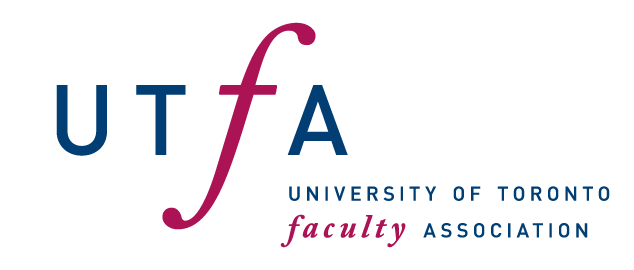February 6, 2024
5. Growing Threats to Academic Freedom on Campus
The health of academic freedom on our campuses is in question. Freedom of speech, research, and academic freedom are “the most crucial of all rights” in the university context, according to our institution’s statement of purpose. And yet, members of the senior Administration are eroding and constricting the exercise of these rights.
In the fall, UTFA Executives questioned the Administration about the basis for concerning statements issued by the UTM Principal (Gillespie) and the FAS Dean (Woodin) that sought to limit the free speech rights of student organizations. Principal Gillespie, for instance, asserted that “[i]t is entirely inappropriate for [student organizations] to express a position that does not represent the views of [their] full membership.”
The practical effect of a requirement of unanimity among all members as a precondition for a student organization’s expression of opinion is tantamount to a ban on all but the most banal views. Such a requirement, in our view, contradicts the University’s Statement of Institutional Purpose and its Statement on Freedom of Speech. Therefore, we asked the Administration to either clarify the basis for those assertions or withdraw them. After stalling for almost a month, the Administration finally responded to our questions on November 10th. They asserted that “the statement released by Principal Gillespie and the remarks made at Arts and Science Council by Dean Woodin should be understood in the context of the Policy on Open, Accessible and Democratic Autonomous Student Organizations, which notes that while student unions at the University of Toronto are autonomous, democratically elected student organizations on campus, they have a commitment to consider and respect the range of their members’ views, whether majority or minority in nature. The intent of the statement by Principal Gillespie and remarks by Dean Woodin was to encourage discourse that was inclusive, kind, compassionate, and respectful.”
But ‘civil discourse’ cannot replace freedom of speech, and the administrators’ statements purported to proclaim a categorical yes/no rule; they do not even mention any concern about either the content or the style of the statements themselves.
The claim that the policy on student organizations supports this bait-and-switch is simply false. Rights to academic freedom, freedom of research, and freedom of speech are “meaningless unless they entail the right to raise deeply disturbing questions and provocative challenges to the cherished beliefs of society at large or the university itself,” to again quote the University’s statement of purpose. While these rights are accorded to individuals, they also extend to individuals cooperating in groups. Their collective aspect is recognized in the University’s own policies, their centrality to the MoA between the Administration and UTFA, and inheres in the very notion of the university, which is not merely a collection of individuals, but a universitas magistrorum et scholarium, a "community of masters and scholars," where rules about governance are adopted collegially, and not merely pronounced by administrators. We continue to press the Administration on these fundamental questions. We also issued a joint statement with other employee and student groups from across the tri-campus defending these precious rights.
< Back to Winter 2024 Update to Members
> Next to 6. UTFA Achieves Major Gains for UofT Librarians: Implementing New Policies for Librarians (PfL)
